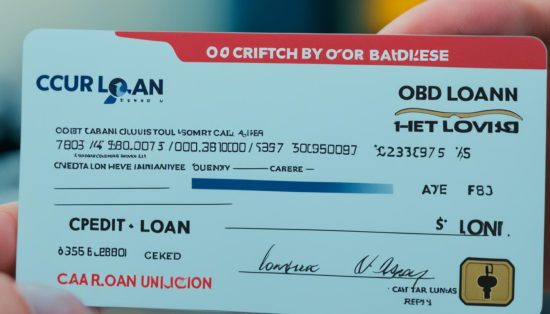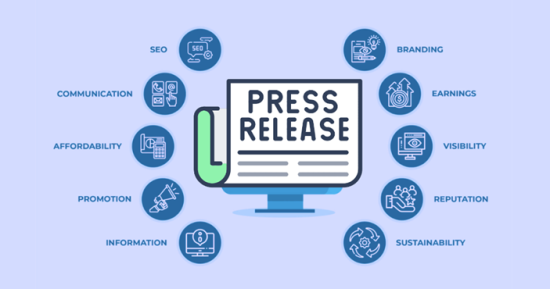
Looking to finance your dream car? If you’ve been exploring different options, you’ve probably come across credit unions. But what sets them apart, and how can you secure a car loan from a credit union?
In this blog, we’ll walk you through the process of obtaining a car loan from a credit union. We’ll explain the benefits of choosing a credit union for your financing needs and provide valuable insights into the eligibility criteria, documentation required, and steps involved in getting approved.
Understanding Credit Union Car Loans
If you’re in the market for a car loan, you may have come across credit union car loans as an alternative to traditional bank loans. Understanding the differences, benefits, and eligibility criteria of credit union car loans can help you make an informed decision about your financing options.
What Sets Credit Unions Apart
Credit unions are not-for-profit financial institutions that are owned and operated by their members. Unlike banks, credit unions prioritize serving their members’ interests rather than maximizing profits. This cooperative structure allows credit unions to offer unique advantages when it comes to car loans.
The Benefits of Credit Union Car Loans
Credit union car loans often come with lower interest rates compared to traditional bank loans. This can result in significant savings over the life of the loan. Additionally, credit unions are known for providing personalized service and tailored solutions to their members. They often take the time to understand your individual needs and financial situation, offering more flexible terms and repayment options.
Eligibility Criteria for Credit Union Members
In order to qualify for a credit union car loan, you typically need to be a member of the credit union. Each credit union may have its own eligibility criteria, which can vary depending on factors such as location, occupation, or membership in specific organizations. However, credit unions generally aim to be inclusive and may have more lenient criteria compared to traditional banks.
By exploring credit union car loans, you can take advantage of the unique benefits they offer, such as lower interest rates, personalized service, and flexible terms. If you’re eligible to join a credit union, it’s worth considering this option for your car financing needs.
Preparing to Apply for a Car Loan
Before you submit your car loan application, it’s essential to take certain steps in order to increase your chances of approval. This section will guide you through the preparation process, including assessing your credit score and gathering the necessary documents.

Assessing Your Credit Score
Your credit score plays a critical role in the car loan application process. Lenders use it to evaluate your creditworthiness and determine the interest rate and terms you qualify for. It’s crucial to have a good credit score to secure favorable terms and lower interest rates.
To assess your credit score, you can obtain a free copy of your credit report from the three major credit bureaus: Equifax, Experian, and TransUnion. Check for any errors or discrepancies that may be negatively impacting your score. If you have a less-than-ideal credit score, consider taking steps to improve it before applying for a car loan. Paying bills on time, keeping credit card balances low, and minimizing new credit inquiries can help boost your credit score over time.
Documents Required for a Car Loan Application
When applying for a car loan, you’ll need to provide certain documents to support your application. These documents vary among lenders but typically include:
- Proof of identity: This may include your driver’s license, passport, or state-issued identification card.
- Proof of income: Lenders want to ensure you have a steady source of income to repay the loan. You may need to provide recent pay stubs, tax returns, or bank statements.
- Proof of residence: This could be a utility bill or lease agreement that confirms your current address.
- Vehicle information: If you’ve already chosen a specific car, you may need to provide details such as the VIN, make, model, and year.
- Insurance information: Most lenders require proof of auto insurance before approving a loan.
Choosing the Right Credit Union
When it comes to financing a car, finding the right credit union is crucial. A credit union can offer competitive loan rates and favorable loan terms that can save you money in the long run. However, with so many credit unions to choose from, it’s important to do your research and make an informed decision. Here are some tips to help you find the credit union that meets your needs.
Finding a Credit Union That Meets Your Needs

Start by considering what you value most in a credit union. Do you prioritize personalized customer service? Are you looking for a credit union that has a strong community presence? Identify your needs and preferences to guide your search. Once you have a clear idea of what you’re looking for, start exploring different credit unions in your area. Look for credit unions that are convenient for you to access, whether it’s through physical branches or online banking.
Comparing Loan Rates and Terms
Once you’ve narrowed down your options to a few credit unions, it’s time to compare their loan rates and terms. Loan rates are crucial as they determine the interest you’ll pay on your car loan. Lower rates can save you money over the course of your loan repayment. Request loan rate quotes from each credit union you’re considering. Take note of the interest rates, whether they are fixed or variable, and any additional fees or charges. Compare these details side by side to see which credit union offers the most favorable terms.
Steps to Get a Car Loan from a Credit Union
Obtaining a car loan from a credit union involves a straightforward process that can be completed in a few simple steps. By following these steps, you can secure the financing you need for your new vehicle.
- Research and Select a Credit Union: Begin by researching various credit unions in your area. Look for credit unions that offer car loans and have favorable terms and interest rates.
- Become a Member: To qualify for a car loan from a credit union, you typically need to become a member first. Review the eligibility criteria and join the credit union that best suits your needs.
- Gather Required Documents: Before applying for the car loan, gather all the necessary documents such as proof of income, identification, and employment details. Prepare these documents in advance to expedite the application process.
- Complete the Application: Fill out the car loan application provided by the credit union. Ensure that you provide accurate and up-to-date information to prevent any delays in the approval process.
- Submit the Application: Once you have completed the application, submit it to the credit union along with the required documents. Be sure to double-check everything to avoid any missing or incomplete information.
- Await Loan Approval: After submitting your application, the credit union will review your information and determine your eligibility for a car loan. This process may take a few business days, so be patient.
- Review Loan Terms: Once your loan is approved, carefully review the terms and conditions provided by the credit union. Pay attention to the interest rate, repayment period, and any additional fees or charges.
- Sign the Loan Agreement: If you agree to the loan terms, sign the loan agreement to finalize the process. Make sure you understand all the terms and ask for clarification if needed.
- Receive Funds and Purchase the Car: Once the loan agreement is signed, the credit union will disburse the funds to your account. You can then use the funds to purchase the car you have been approved for.
By following these steps, you can navigate the credit union car loan process smoothly and secure the financing you need for your next vehicle. Keep in mind that each credit union may have slight variations in their process, so be sure to reach out to your chosen credit union for any specific instructions or requirements.
Negotiating the Terms of Your Car Loan
When obtaining a car loan from a credit union, it’s essential to understand your rights as a borrower and ensure that you secure the best possible terms for your loan agreement. Negotiating the terms of your car loan can make a significant difference in the overall cost and repayment process. In this section, we’ll explore how to effectively negotiate loan terms and make sure you’re getting the most favorable agreement.
Decoding Loan Agreement Clauses
A crucial step in negotiating your car loan terms is thoroughly understanding the loan agreement clauses. Loan agreements often contain complex language and conditions that can be overwhelming for borrowers. By deciphering these clauses, you can identify potential pitfalls or unfavorable terms hidden within the agreement.
It’s important to pay close attention to clauses related to interest rates, prepayment penalties, late payment fees, and any other charges that may affect the overall cost of the loan. By familiarizing yourself with these clauses, you can negotiate changes or request clarification on terms that may not be in your best interest.
Leveraging Pre-approval for Better Terms
Pre-approval is a valuable tool that can empower you during the negotiation process. By obtaining pre-approval for a car loan from your credit union, you gain insight into your borrowing capacity and can establish a strong position when negotiating loan terms.
When armed with a pre-approval, you can confidently approach lenders and negotiate for better terms, such as lower interest rates or extended repayment periods. Credit unions, eager to secure your business, may be willing to offer more favorable terms, knowing that you are pre-approved and have the ability to choose the most advantageous loan option.
How to Get a Car Loan from a Credit Union?

Getting a car loan from a credit union is a straightforward process that can help you secure the financing you need to purchase your dream car. Credit unions offer competitive interest rates and flexible terms, making them an attractive option for borrowers looking for affordable financing options. To ensure a smooth credit union car loan process, follow these steps:
- Gather your documents: Before applying for a car loan, make sure you have all the necessary documents handy. This includes your identification, proof of income, and vehicle information. Having these documents ready will speed up the application process and increase your chances of approval.
- Research credit unions: Shop around and compare different credit unions to find the one that best suits your needs. Look for credit unions that offer competitive interest rates, favorable terms, and excellent customer service. Consider joining a credit union that aligns with your values and offers additional benefits, such as financial education programs or member discounts.
- Meet eligibility requirements: Each credit union has its own eligibility criteria for membership and loan applications. Make sure you meet these requirements before applying. Typically, credit unions require applicants to be members, which may involve meeting specific residency or employment criteria. Review the eligibility guidelines carefully to ensure you qualify before moving forward.
- Apply for a loan: Once you have selected a credit union, you can begin the loan application process. Most credit unions offer online applications, making it convenient and accessible. Provide accurate information and complete all required sections to avoid delays in processing your application.
- Review loan terms: After submitting your application, the credit union will review it and assess your creditworthiness. If approved, carefully review the loan terms and conditions. Pay attention to the interest rate, repayment term, and any additional fees or requirements. Make sure you understand all the terms before finalizing the loan agreement.
- Finalize the purchase: Once you have obtained loan approval, it’s time to finalize your car purchase. Use your approved loan amount to negotiate the price with the seller. Ensure that the car meets your needs and preferences and that you are satisfied with the purchase before signing any contracts.
- Repay the loan: Once you have purchased the car, it’s important to make on-time monthly payments to repay the loan. Set up automatic payments or establish a reminder system to avoid missing any payments. Consistent and timely repayments will help you build a positive credit history and maintain a good relationship with the credit union.
The Role of Credit History and Income in Loan Approval
When applying for a car loan from a credit union, your credit history and income play a crucial role in determining your loan approval and the terms you will be offered. Lenders carefully assess these factors to evaluate your ability to repay the loan responsibly.
How Your Credit History Affects Loan Terms
Your credit history is a record of your past borrowing and repayment behavior. Lenders review this information to assess your creditworthiness and determine the risk associated with lending you money. A positive credit history, including timely payments and low credit utilization, can lead to more favorable loan terms, such as lower interest rates and longer repayment periods.
On the other hand, if you have a poor credit history with missed payments, high levels of debt, or previous loan defaults, lenders may consider you a higher risk borrower. This could result in higher interest rates, stricter loan conditions, or even denial of your loan application.
The Importance of Steady Income for Loan Consideration
In addition to credit history, lenders also assess your income stability when evaluating your loan application. They want to ensure that you have a reliable source of income to make regular loan payments. A steady income demonstrates your ability to repay the loan on time and reduces the risk of default.
Lenders typically look for consistent employment and a stable income stream. If you have a history of frequent job changes or irregular income, it can raise concerns for lenders. However, if you can demonstrate a stable employment history and a steady income that meets the lender’s requirements, it can strengthen your loan application and increase the likelihood of loan approval.
What to Expect During the Credit Union Loan Process

The Application Process
Applying for a car loan from a credit union involves a straightforward process that typically begins with filling out an application form. You can complete the application online, over the phone, or in person at a branch. Be prepared to provide personal information, such as your name, address, social security number, employment details, and income.
Additionally, you may need to submit supporting documents, such as proof of identification, proof of income, and proof of insurance. These documents help the credit union evaluate your creditworthiness and ensure that you meet the eligibility criteria.
The Approval Timeline of Credit Union Loans
The approval timeline for credit union loans can vary depending on factors such as the credit union’s internal processes, the complexity of the loan application, and the availability of required documents. In general, credit unions aim to provide a prompt response to loan applications.
After you submit your application, the credit union will review it to assess your creditworthiness and confirm that you meet their lending criteria. This evaluation process typically takes a few business days. During this time, the credit union may contact you for any additional information or documentation required.
Once the credit union approves your loan, you will receive a notification detailing the loan amount, interest rate, and repayment terms. At this point, you can proceed with the purchase of your desired vehicle, confident in the knowledge that your loan has been approved.
Protecting Your Investment: Insurance and Loan Protection
When it comes to financing your new car, it’s essential to understand the insurance requirements and options available to protect your investment. In this section, we’ll explore the insurance requirements for your new car and discuss the benefits of GAP insurance and loan protection plans.
Insurance Requirements for Your New Car
Before you can drive your new car off the lot, you’ll need to meet the insurance requirements set by your credit union. These requirements typically include liability coverage to protect against any bodily injury or property damage caused by an accident.
Additionally, comprehensive and collision coverage may be required if you have a car loan or if your vehicle is leased. These coverages help protect your car against damage from accidents, theft, vandalism, and natural disasters.
Considering GAP and Loan Protection Plans
While standard car insurance coverage helps protect your vehicle, it may not provide sufficient financial protection in certain situations. This is where GAP insurance and loan protection plans come into play. GAP insurance, or Guaranteed Asset Protection insurance, covers the “gap” between the actual cash value of your car and the amount you owe on your loan. In the event of a total loss, such as theft or a severe accident, GAP insurance can help pay off the remaining loan balance that your standard insurance coverage may not fully cover.
Tips for Successfully Managing Your Car Loan
Managing a car loan effectively is essential for maintaining your financial stability and ensuring timely loan repayment. By following these tips, you can stay on top of your loan obligations and potentially save money in the long run.
1. Create a realistic budget: Start by assessing your monthly income and expenses. This will give you a clear picture of how much you can afford to allocate towards your car loan repayment. Remember to consider other financial obligations such as rent, utilities, and insurance premiums.
2. Make timely payments: Consistently making your car loan payments on or before the due date is crucial to avoid late fees and negative impacts on your credit score. Consider setting up automatic payments or reminders to help you stay organized.
3. Explore refinancing options: If you find yourself struggling with high interest rates or unmanageable monthly payments, it may be worth exploring refinancing options. Contact your credit union to see if they offer refinancing services or shop around for better loan terms from other lenders.
4. Consider early repayment: If your financial situation allows, consider making extra payments or paying off your car loan earlier than the agreed-upon term. This can potentially save you money on interest charges and free up funds for other financial goals.
FAQs on Car Loan from Credit Union
What are the benefits of choosing a credit union car loan?
Choosing a credit union car loan offers several benefits, including lower interest rates, flexible repayment terms, and personalized customer service. Credit unions often have a strong sense of community and may offer additional perks such as loan rate discounts and financial education resources.
How can I prepare to apply for a car loan?
Before applying for a car loan, it’s important to assess your credit score. You can obtain a free credit report from the major credit bureaus. Additionally, gather the necessary documents for the loan application, including proof of income, identification, and vehicle details.
How do I choose the right credit union for a car loan?
To choose the right credit union for a car loan, consider factors such as the credit union’s reputation and customer reviews, the range of loan products and services offered, and the proximity of branches or online banking options. It’s also important to compare loan rates and terms from different credit unions to find the most favorable option.
How can I successfully manage my car loan?
To successfully manage your car loan, create a budget to ensure you can comfortably make loan payments. Make payments on time to avoid late fees and potential damage to your credit score. Consider refinancing your loan if you find better terms elsewhere, and explore options for early repayment if you’re able to pay off the loan ahead of schedule.






